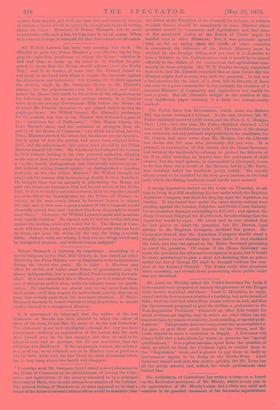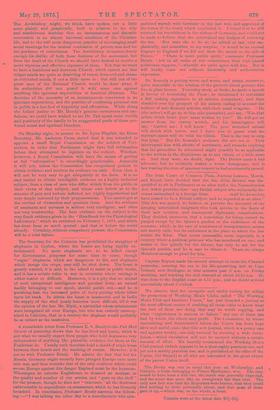The Archbishop of Canterbury has written a letter to a
friend on the Revivalist -movement of Mr. Moody, which is very just in its appreciation of Mr. Moody's aims, but a little too mild and cautious in its guarded treatment of his favourite superstitions. The Archbishop might, we think, have spoken out a little more plainly and graphically, both in relation to the silly and mischievous doctrine that an instantaneous and dateable conversion is an almost universal condition of the Christian life, and to the still more dangerous practice of encouraging small social meetings for the mutual confession of private sins and for the guidance of consciences. The Archbishop intimates clearly -enough his dislike of both these features of the movement, but from the head of the Church we should have desired to receive a more vigorous and effective exposure of them. Not that we want to have a fastidious and decorous Church, which cannot see that vulgar minds are quite as deserving of rescue from evil and shame as cultivated minds, if not a little more so ; but still one of the great uses of the National Church would be done away, if its authorities did not guard it with some care against anything like ignorant superstition or fanatical illusions. The .doctrine of the necessity of an instantaneous conversion is an ignorant superstition, and the practice of confessing personal sins in public is a hot-bed of hypocrisy and affectation. While doing the fullest justice to Mr. Moody's genuine earnestness and use- fulness, we could have wished to see Dr. Tait speak more vividly -and positively of the hardly to be exaggerated perils of these pro- found moral and spiritual blunders.



































 Previous page
Previous page